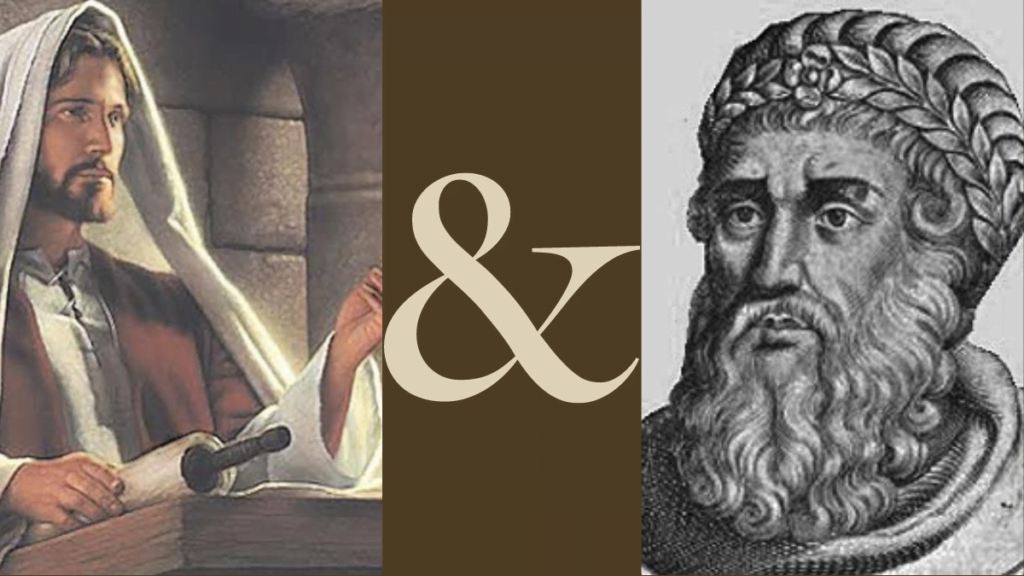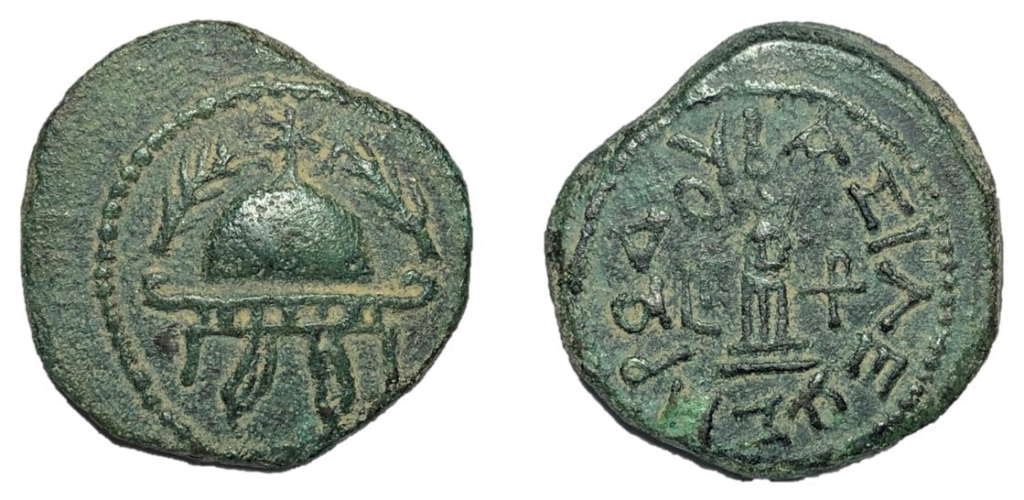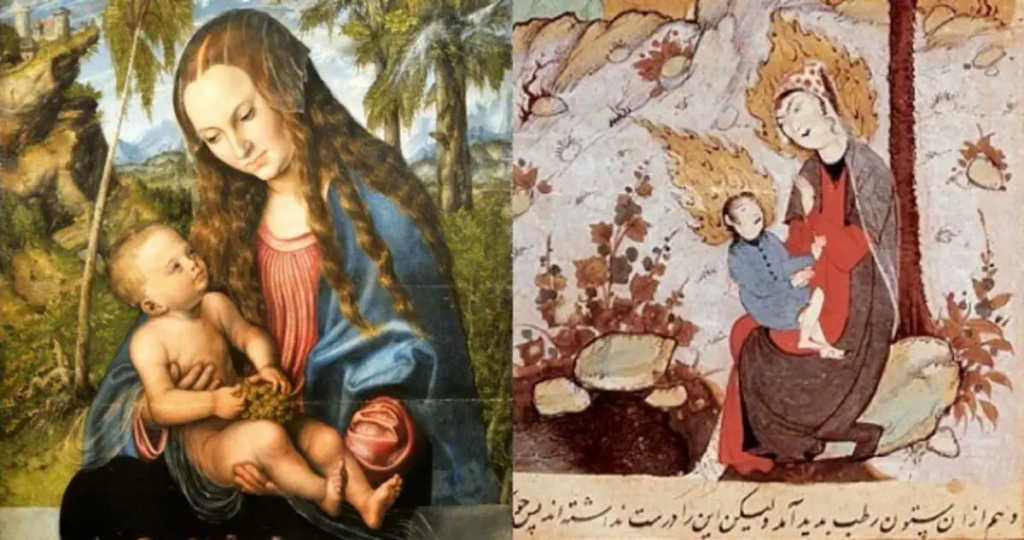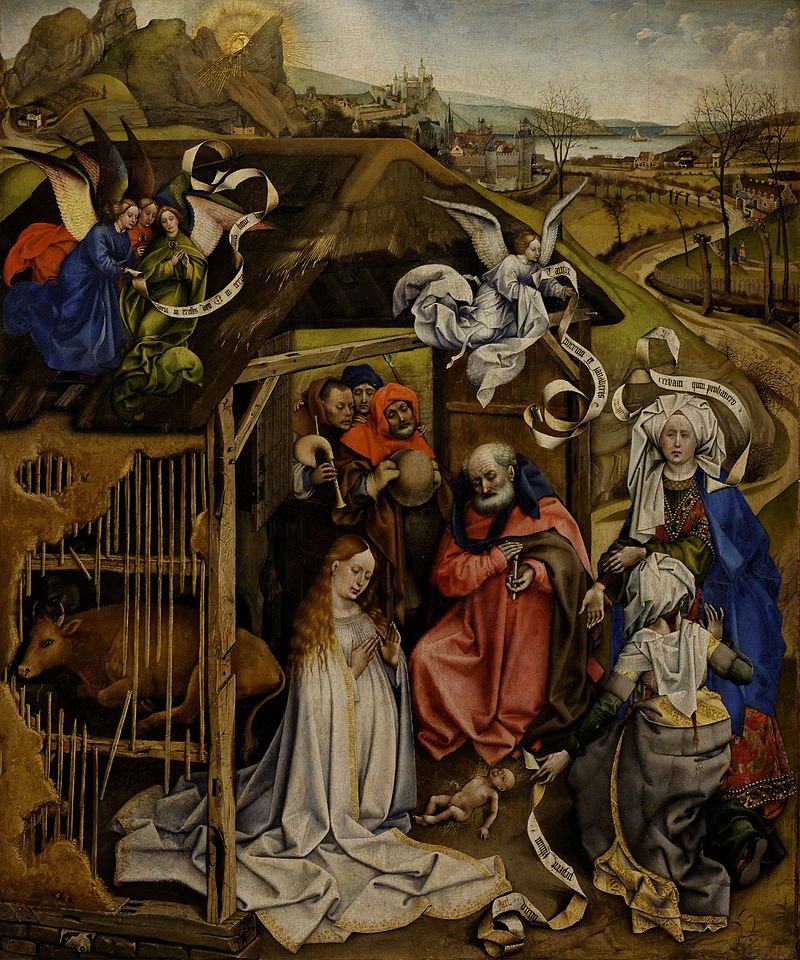Imagine waking up one day and realizing that you were born over 2,000 years ago! That’s how long ago Jesus was born, and his birth is the most important event in all of history.
Scholars estimate that Jesus was born between 6 BC and 4 BC, and he likely began preaching around AD 28–29. The crucifixion is believed to have occurred between AD 30 and AD 36. Therefore, Jesus was born approximately 2024 to 2026 years ago, depending on the estimated birth year.
In this article, we will explore Jesus’ birth in more depth. We will also discuss the historical, scientific, and biblical evidence for the date of his birth.
Dating Jesus’ Birth
The exact date of Jesus’ birth is unknown, but most scholars agree that he was born between 6 and 4 BC. This date is based on a number of factors, including the analysis of biblical accounts and historical events.
One of the most important biblical accounts for dating Jesus’ birth is the Gospel of Matthew. Matthew mentions that Jesus was born during the reign of King Herod the Great. Herod died in 4 BC, so Jesus must have been born before that date.

Another important biblical account is the Gospel of Luke. Luke mentions that Jesus was born during the time of a census ordered by Caesar Augustus. This census took place in 6 BC, so Jesus must have been born after that date.
In addition to the biblical accounts, scholars also use historical events to date Jesus’ birth. For example, one important historical event is the death of John the Baptist. John the Baptist was killed by Herod Antipas, who reigned from 4 BC to 39 AD. Since John the Baptist was older than Jesus, Jesus must have been born before 4 BC.
The Gospels do not explicitly provide the date of Jesus’ birth. However, scholars have developed a number of methods to estimate the year of his birth based on the biblical accounts and other historical evidence.
Method 1: King Herod’s Reign
One approach correlates Jesus’ birth to the reign of King Herod the Great, a historical figure whose rule is well-documented. By examining the gospel accounts that mention Herod’s role in the Nativity story, scholars suggest a birthdate range between 6 BC and 4 BC.

Some scholars also consider theories about the exact date of Herod’s death and astronomical events to refine their estimates of Jesus’ birth. For example, a lunar eclipse mentioned by the historian Josephus is thought to have occurred in 4 BC, which would place Jesus’ birth earlier than that year.
Method 2: Subtracting Age from Preaching
The Gospel of Luke states that Jesus began preaching at “about 30 years” of age during “the fifteenth year” of the reign of Tiberius Caesar (Luke 3:1-2). Scholars calculate a birth date around 2 BC by subtracting 30 years from this reference. This approach aligns with a timeframe before Herod’s death in 4 BC.
Method 3: The Timing of Jesus’ Crucifixion
The Gospels provide crucial clues about the timing of Jesus’ crucifixion. According to the Gospels, Jesus was crucified during the reigns of key figures:
- Roman governor Pontius Pilate (26-36 A.D.)
- Jewish high priest Caiaphas (18-36 A.D.)
- Roman Tetrarch Herod Antipas (4 BC-A.D. 37)
These references help scholars piece together the timeline of Jesus’ life and ministry. By cross-referencing these events with other historical records, scholars can estimate that Jesus was likely crucified in the early 30s A.D. This information can then be used to calculate a birth date around 2 or 3 BC.
Other Considerations
Some scholars also consider additional factors when estimating Jesus’ birth, such as astronomical events and theories about Herod’s death. For example, some scholars believe that a conjunction of Jupiter and Saturn in 7 BC may have been the “star” of Bethlehem mentioned in the Gospel of Matthew. Others believe that Herod may have died in 5 or 6 BC, which would push Jesus’ birth date back slightly.
Challenges of Dating Jesus’ Birth
Dating Jesus’ birth is a complex task, and there are a number of challenges that scholars face. One challenge is that the biblical accounts of Jesus’ birth are not always consistent with each other. For example, Matthew and Luke provide different accounts of the circumstances surrounding Jesus’ birth.
Another challenge is that there is a lack of historical records from the time of Jesus’ birth. The only surviving historical records from this time are from Roman sources, and these sources do not mention Jesus’ birth.
Despite these challenges, scholars have been able to use the biblical accounts and historical events to narrow down the possible date of Jesus’ birth to a period between 6 and 4 BC.
Year of Commencement of Jesus’ Preaching
The year Jesus commenced his preaching is a matter of scholarly debate, but most scholars place it between AD 27 and AD 29. This estimate is based on a convergence of historical clues, including the reign of Tiberius Caesar, the construction of the Temple in Jerusalem, and the death of John the Baptist.
The Reign of Tiberius Caesar
The Gospel of Luke states that Jesus began his ministry “about thirty years old” during “the fifteenth year of the reign of Tiberius Caesar” (Luke 3:1-2). Tiberius Caesar became Roman emperor in AD 14, so his fifteenth year of reign would be AD 28–29. This suggests that Jesus began preaching at some point during this two-year period.
Construction of the Temple in Jerusalem
The Gospel of John mentions that Jesus was in Jerusalem for the Passover festival when he was twelve years old (John 2:13). This event would have taken place in AD 27, since the construction of the Temple in Jerusalem was completed in AD 26. This suggests that Jesus was born around AD 6–7, and that he began his ministry at the age of about 30, as stated in the Gospel of Luke.
Death of John the Baptist
The Gospels also mention that Jesus began his ministry after the death of John the Baptist. John the Baptist was executed by Herod Antipas, the tetrarch of Galilee, sometime between AD 28 and AD 29. This suggests that Jesus began his ministry sometime after this date.
Combining these three pieces of evidence, scholars estimate that Jesus began his preaching between AD 27 and AD 29. This is the most commonly accepted date for the commencement of Jesus’ ministry.
Different Interpretations of Jesus’ Birth
There are many different interpretations of the significance of Jesus’ birth. Christians believe that Jesus was the Son of God and the Messiah. They believe that his birth was the fulfillment of Old Testament prophecies and the beginning of a new era of salvation.
Other people have different interpretations of Jesus’ birth. Some people believe that Jesus was a great teacher and prophet. Still others believe that Jesus was a myth or a legend.
Maier’s Research
Historian Paul Maier’s research suggests that Jesus may have been born in November or December of 5 BC. Maier’s research is based on a variety of factors, including the Gospels’ accounts of Jesus’ birth, the historical record of King Herod’s reign, and astronomical alignments. (See: The First Christmas: The True and Unfamiliar Story, paperback, available on Amazon)
While Maier’s research is intriguing, it is important to note that it is not universally accepted by scholars. Some scholars have raised concerns about the reliability of certain sources used by Maier, and others have argued that his interpretation of the data is flawed.
Overall, the scholarly consensus on Jesus’ birth is that he was born between 6 and 2 BC. This estimation is based on a variety of factors, and while there is some debate among scholars, the evidence suggests that this is the most likely date for Jesus’ birth.
Islamic Views
The Islamic view of Jesus’ birth is based on the Quran and the Hadith, which are the primary sources of Islamic thought and practice. The Quran does not explicitly state the date of Jesus’ birth, but there are a few verses that suggest that it occurred in the spring.

For example, the Quran states that Mary gave birth to Jesus under a palm tree (Quran 19:23). Palm trees in the Middle East typically bear fruit in the spring, so this verse suggests that Jesus was born during this time of year.
Additionally, the Quran states that Jesus was born on a night when the moon was full (Quran 19:20). This suggests that Jesus was born on the night of a full moon, which is a common Islamic holiday known as Eid al-Fitr. Eid al-Fitr typically occurs in the spring, so this verse also supports the idea that Jesus was born during this time of year.
The Hadith also provide some additional information about the timing of Jesus’ birth. For example, the Hadith state that Jesus was born on the 17th of Ramadan (Sahih al-Bukhari 5667). Ramadan is the ninth month of the Islamic calendar, and it typically falls in the spring months of March or April.
Based on this evidence, Islamic scholars generally believe that Jesus was born in the spring, near the Spring Equinox. This belief is also supported by the fact that the Spring Equinox is a time of new beginnings and rebirth, which is symbolic of the new life that Jesus brought into the world.
It is important to note that the Islamic view of Jesus’ birth is not universally accepted by all Muslims. Some Muslims believe that Jesus was born on a different date, or even in a different year. However, the majority of Muslims believe that Jesus was born in the spring, near the Spring Equinox.
Summary of Jesus’ Birth and Ministry
The date of birth of Jesus of Nazareth is not explicitly stated in the gospels or any secular text. However, scholars have developed a number of methods to estimate the year of his birth based on the biblical accounts and other historical evidence.
Most scholars believe that Jesus was born between 6 BC and 4 BC. This estimate is based on a variety of factors, including the Gospels’ accounts of Jesus’ birth and preaching, as well as the historical record of King Herod’s reign and other relevant events.
The Gospels also provide clues about the timing of Jesus’ ministry. The Gospel of Luke states that Jesus began his ministry “about thirty years old” during “the fifteenth year of the reign of Tiberius Caesar” (Luke 3:1-2). Tiberius Caesar became Roman emperor in AD 14, so his fifteenth year of reign would be AD 28–29. This suggests that Jesus began preaching at some point during this two-year period.
The Gospels also mention that Jesus was crucified during the reign of Pontius Pilate, who was the Roman governor of Judea from AD 26 to AD 36. This suggests that Jesus was crucified between AD 30 and AD 36.
Based on this evidence, scholars estimate that Jesus was born approximately 2024 to 2026 years ago, depending on the estimated birth year.
Conclusion
The date of birth of Jesus of Nazareth is not explicitly stated in the gospels or any secular text. However, scholars have developed a number of methods to estimate the year of his birth based on biblical accounts and other historical evidence.
Most scholars agree that Jesus was born between 6 BC and 4 BC. This estimate is based on a variety of factors, including the Gospels’ accounts of Jesus’ birth and preaching, as well as the historical record of King Herod’s reign and other relevant events.
Additionally, based on the available evidence, scholars estimate that Jesus began preaching around AD 28–29 and was crucified between AD 30 and AD 36. Therefore, Jesus was born approximately 2024 to 2026 years ago, depending on the estimated birth year.
While the exact date of Jesus’ birth is unknown, the scholarly consensus is that he was born between 6 BC and 4 BC. This means that he was born approximately 2024 to 2026 years ago.
This date is significant for Christians, as it marks the beginning of the life of their Savior. It is also a significant historical event, as Jesus was a major religious and social figure who had a profound impact on the world.
Frequently Asked Questions
Here, you’ll find answers to some of the most common questions we’ve received. If you have a question that’s not answered here, please feel free to contact us.
1. Was Jesus born in 1 BC?
The exact date of Jesus’ birth is unknown, but most scholars agree that he was born between 6 BC and 4 BC. This estimate is based on the Gospels’ accounts of Jesus’ birth and preaching, as well as the historical record of King Herod’s reign and other relevant events.
2. How many years ago was Jesus born?
Assuming that Jesus was born between 6 BC and 4 BC, then he was born approximately 2024 to 2026 years ago, depending on the estimated birth year.
3. What is the significance of the date of Jesus’ birth?
The date of Jesus’ birth is significant to Christians because it marks the beginning of the new covenant between God and humanity. Jesus’ birth fulfilled the Old Testament prophecies about the Messiah, and it ushered in a new era of salvation and hope.
4. How is the date of Jesus’ birth calculated?
Scholars use a variety of methods to estimate the year of Jesus’ birth, including:
- Analyzing references to known historical events mentioned in the nativity accounts in the Gospels of Luke and Matthew.
- Working backward from the estimation of the start of Jesus’ ministry, as mentioned in Luke 3:23.
- Astrological or astronomical alignments.
5. Why is the date of Jesus’ birth important?
The date of Jesus’ birth is important to Christians because it marks the beginning of the Christian era. It is also a reminder of God’s love for humanity and the gift of eternal life that he offers through his son, Jesus.

